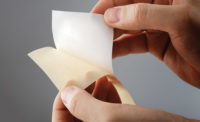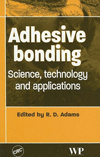Editor's Memo
The Future is Now
Consumers today want to make sure they are buying high-quality products that are also good for the environment.

Today’s environmentally conscious consumer does more than just buy organic, fair-trade groceries and recycle newspapers and glass containers. Now, consumers research the everyday items they buy in the same way as big-ticket purchases like TVs or cars, to make sure they are both high-quality products and good for the environment.
“Consumers are becoming more informed about where and how their products are made, and they increasingly include sustainability as part of their criteria for purchasing,” writes Hong Zheng, Kraton marketing director. For example, in Europe, companies that achieve a certain bio-based product certification are able to differentiate in the crowded adhesives industry as bio-based products gain interest in the global market. Suppliers can use this certificate and label to demonstrate that they comply with the necessary requirements. Find out more here.
Researchers at Purdue University have taken the chemistry of mussel proteins and developed a biomimetic polymer called poly(catecholstyrene), creating an adhesive by harnessing the chemistry of compounds called catechols. “We are focusing on catechols given that the animals use this type of chemistry so successfully,” says Jonathan Wilker, a professor of chemistry and materials engineering. “Poly(catecholstyrene) is looking to be, possibly, one of the strongest underwater adhesives found to date.” Read more here.
What is your company doing to be sustainable, both now and in the future? I’d love to hear about it! Drop me a line at mcphersont@bnpmedia.com. ASI
Teresa McPherson is Editor of ASI magazine. If you wish to send a letter to the editor, please email mcphersont@bnpmedia.com. Letters must include the sender’s address, phone number and email address, when possible. Letters may be edited for space and clarity.
Join the ASI community at www.adhesivesmag.com/connect.
Looking for a reprint of this article?
From high-res PDFs to custom plaques, order your copy today!









